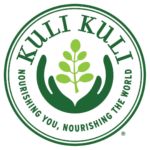
Moringa is rising in popularity, but unlike other superfoods, it has a positive social and environmental impact.

Over the past few decades, we’ve watched quinoa, soy, and kale transform from niche health foods into mainstream superfoods. All have been lauded for their nutritional value, adding extra greens, iron, and plant-based protein to our diet. But are all of these superfoods as good for the planet as they are for you?
Unfortunately, many superfoods have been unable to reconcile increasing consumer demand with sustainability. Quinoa’s widespread popularity has been criticized for driving up local prices, making the once-staple food unaffordable for poorer Peruvians and Bolivians, while the growing need for soy has led to massive deforestation in South America. Even our beloved super-green, kale, hasn’t completely escaped criticism; a recent study showed that kale can sometimes contain thallium, a toxic heavy metal.
Google Trends show that moringa is on a similar popularity path due to its amazing nutritional and medicinal value. However, Kuli Kuli is here to make sure moringa doesn’t follow the same trend when it comes social or environmental impact.

Kuli Kuli sources moringa from women-led farming cooperatives around the world. We partner with local organizations in Ghana, Haiti and Nicaragua to help farmers grow high-quality moringa for export to the U.S. in addition to using it to improve nutrition locally. Since our launch in 2013, Kuli Kuli has planted 200,000 moringa trees, provided a sustainable livelihood for 700 moringa farmers, and partnered with two nonprofits to provide nutritional education to hundreds of rural community members.
“We’ve experienced rapid growth because we solve a real challenge for Americans and for farmers in the developing world,” said Lisa Curtis, our Co-Founder and CEO. “Americans are increasingly looking for easy ways to incorporate greens into their diet. As the most nutrient-dense vegetable on the planet, moringa solves that market demand. At the same time, farmers are looking for more climate-smart crops. We’re proud that every moringa product we sell helps to plant moringa trees and support farmers in the developing world.”
Take Haiti, for example. 70% of Haitians live on less than $2 per day, and the country has some of the highest malnutrition rates in the world. Even worse is the fact that only 1% of Haiti’s original forest still remains.
Fortunately, moringa loves to grow in dry climates like Haiti. Not only does it grow quickly, but it is also incredibly nutritious. Last year, we launched our new Moringa Green Energy shot in partnership with the Smallholder Farmers Alliance to provide sustainable income for hundreds of Haitian farmers, reforest the landscape, and ensure the community has access to the nutritional benefits of moringa leaves. Check out this video with our CEO Lisa after our Indiegogo campaign last year:
This week, Whole Foods Market extended a $100,000 loan for us to grow our product line of Moringa Green Energy Shots. For us, this means more than just good business; it means doing more good.
“We are thrilled to partner with Kuli Kuli as one of our new Local Producer Loan Program recipients,” said Jenna Gelgand, Senior Program Administrator for Whole Foods Market. “These loans provide avenues for innovative producers like Kuli Kuli to expand their businesses and we’re so excited to be part of that continued growth.”
We believe that the world would be a much better place if everyone had the resources and knowledge to access the nutritional power of moringa. So, next time you take a swig of our Moringa Green Energy Shot, know that you’re not just nourishing yourself, you’re nourishing the world.







